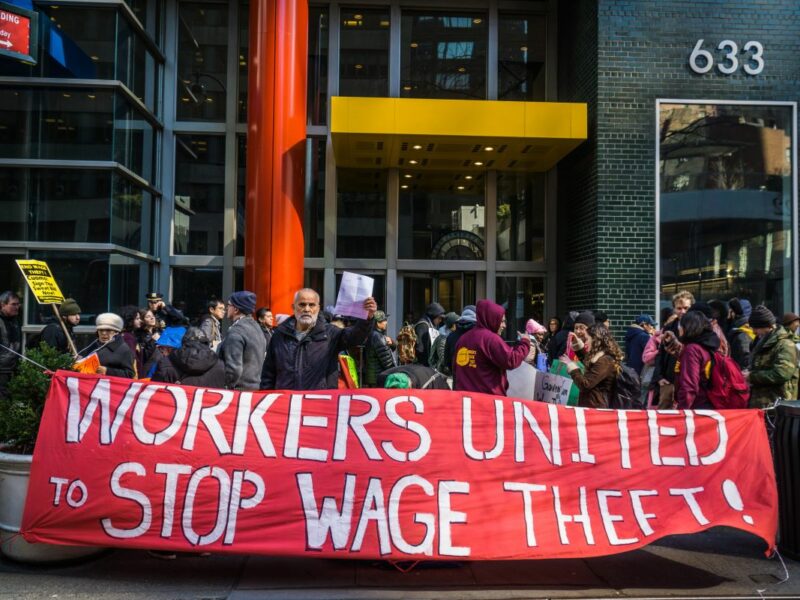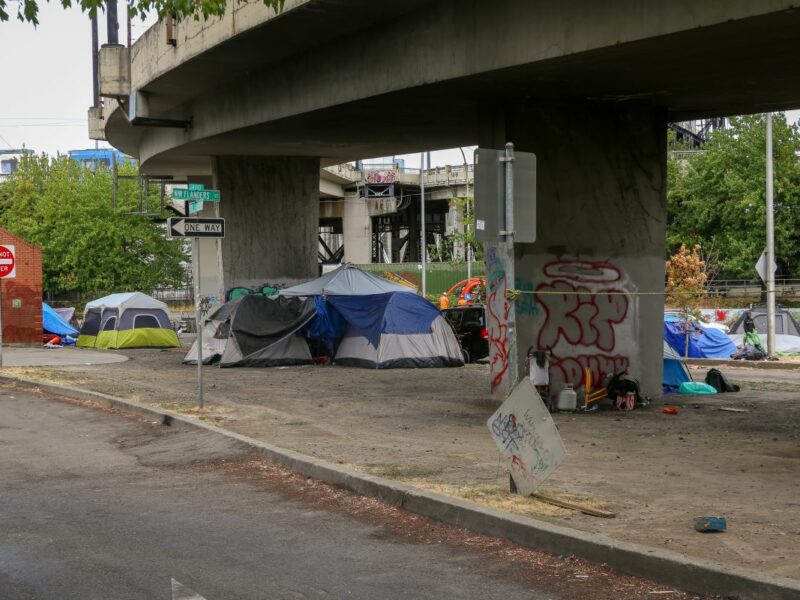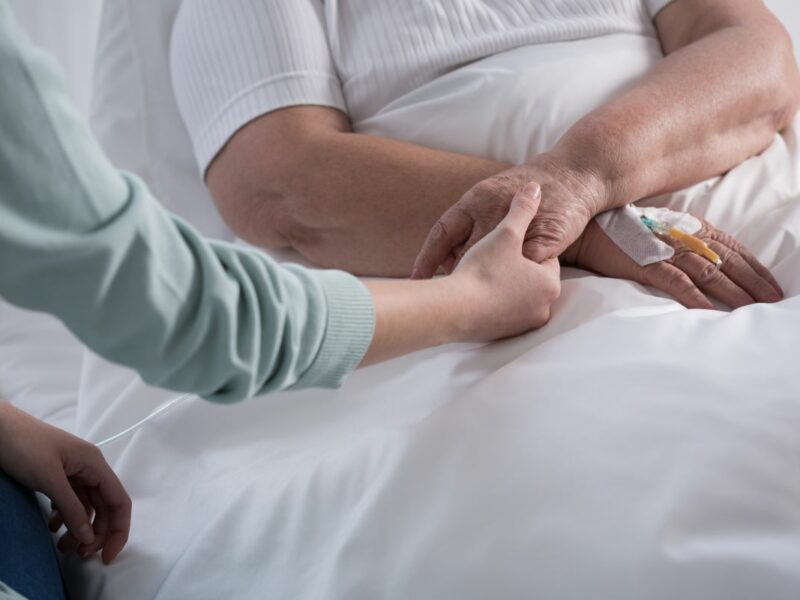Jason, a friendly and charismatic man who lives in Los Angeles, works full time. Jason is also homeless. As you can see in our interview with Jason, he has a full time job — sometimes working as long as 14 hours a day. But because housing prices are so high in the area, he can’t afford a home. Karla, a determined and persevering woman, has had a different experience. She struggles with an addiction as well as with homelessness. Despite many valiant attempts, she has been unable to remain sober. It’s near impossible to overcome an addiction without the stability of a home, without a support network.
Homeless people across the United States face the same challenges as Jason and Karla. Lack of affordable housing and insufficient support networks are two of the biggest causes of homelessness in our country. So how do we fix this? The answer is surprisingly simple – provide homeless people with access to affordable housing and sufficient support. But while the solution is simple, it’s not necessarily easy to get there. Widespread change requires the effort and dedicated action of passionate citizens. But before we look at how to make these changes, let’s examine the solutions themselves a little more closely.
Provide Access to Affordable Housing First
Lack of affordable housing is the leading cause of homelessness in the United States. Many homeless programs, however, don’t address this issue directly. Instead, they require homeless individuals to secure employment or get clean before receiving housing. These are called “Treatment First” initiatives. Simply stated, they don’t work, and it’s easy to understand why.
Finding steady employment requires a person to be well-fed, well-rested, well-dressed, and showered. How can a homeless person find steady work without a home in which to shower, eat, and sleep, without money to buy work clothes and keep them clean? And addiction recovery requires stability – something that homeless people lack in spades. How can a homeless person be expected to overcome an addiction without any material or psychological support?
Fortunately, a new initiative has taken hold – Housing First.
Housing First programs do just what they sound like – they provide homeless people with affordable housing first. These initiatives then provide support services after securing housing. The program may seem simplistic – reduce homelessness by providing people with homes. But it works, extremely well in fact.
The success of a Housing First policy in New Orleans serves as a prime example. After Hurricane Katrina, New Orleans suffered a crisis of homelessness. Over 11,000 people were without homes. They worked to tackle the problem head on by creating a Housing First program in 2007.
“You just accept them as they are and you provide the housing first,” Martha Kegel, executive director of the homelessness organization, Unity of Greater New Orleans, said in an article for WBUR. “Then, once they’re in their apartment, you immediately wrap all the services around them that they need to stay stable and live the highest quality life that they can live.”
The program was extremely effective.
Their Housing First initiative reduced homelessness in the city by a whopping 90 percent. And New Orleans isn’t an outlier. The research around Housing First initiatives is extremely robust. For instance, a Brown study found that individuals in Housing First programs found that 90 percent of Housing First residents were still living in homes after one year compared to just 35 percent of those in other programs.
These numbers represent thousands of people like Karla and Jason. One woman’s experience in particular moved Kegel, “I can think of a woman, for example, who was a very paranoid schizophrenic… no matter what time of year it was, she was always bundled up in a heavy winter coat. And she refused to eat the reception food off the plate. Instead she would pick up scraps of food that had been dropped that were on the concrete floor of the courtyard. I remember that very clearly, her doing that.”
They encouraged the woman to join their housing program, and later Kegel visited her, “I went in the building and I didn’t recognize her because she had gone with her case manager through this box of donated clothing. And when I saw her, she was wearing just a light cotton floral summer dress and she looked happy and I teared up. You know, it was just such a traumatic thing.” The dramatic positive change in the woman wasn’t fleeting. “She’s been stably, happily housed ever since,” Kegel says. Housing First makes real change for real people, and one of the most vital pieces of these programs is that they also provide supportive services.
Supplement Affordable Housing with Supportive Services
Approximately 30 percent of chronically homeless people have a mental health condition. Around 50 percent struggle with a co-occurring substance abuse problem. Recovery from mental illness and addiction takes an extreme physical and emotional toll on a person.
Recovery requires extensive physical and psychological support. Those trying to get clean will endure excruciating physical symptoms. Individuals recovering from an addiction experience nausea, vomiting, spasms, and more. Many also have the terrifying sensation of bugs crawling underneath the skin. It’s unrealistic to expect anyone to be able to overcome addiction alone. Providing affordable housing first gives people firm grounding to start from. The next step is to provide support.
This support can take many different forms. Many Housing First initiatives provide regular visits by a social worker. They also often offer drug treatment and job training programs. All these supportive services help people help themselves. With this extra support, people recover from addictions and mental illnesses, find jobs, and go on to lead fulfilling lives.
How to Make it Happen
If we enacted widespread Housing First policies, we could nearly eliminate homelessness in the United States. So what’s holding us back and how can we can we make these changes happen?
The biggest issues are funding and a misunderstanding of the causes of homelessness. The Department of Housing and Urban Development (HUD) funds initiatives to alleviate homelessness. It’s also severely underfunded. Additionally, many don’t understand that a lack of affordable housing causes homelessness — not personal flaws. So how can we change things?
There are several ways to ensure that homeless people across the country gain access to affordable housing and supportive care. For things to change, our governments need to properly fund the HUD and local Housing First initiatives. It’s also vital to spread awareness about the true causes of homelessness.
What You Can Do
What can you do to help our country get to a place where everyone has a home? Get active in your government — especially local government — and vote. Change often starts at the local level — think cities and states. Just as New Orleans was able to make widespread change despite a lack of change in the United States at large, you can help promote change in your own state. Contact your representatives and tell them you want them to support Housing First programs. Pay attention to local elections and vote for politicians who advocate for Housing First policies.
Small local communities can make big changes. One county in New Jersey completely ended chronic homelessness in their community. They were the first in the entire nation to do so. How did they do it? The community made a commitment and a plan and stuck to it. They gained widespread support and properly funded it. By giving the issue the proper attention and services it requires, they eliminated chronic homelessness in their county.
You, too, can advocate for change in your own community. Support non-profit organizations working to provide affordable housing and get involved in local government. You may even consider running for a local political office where you can propose Housing First initiatives yourself.
With Action, We Can Make Change
Jason and Karla are fighters who have faced unfair circumstances. With a little support, they and others like them can get into housing, find work, and flourish. But we have to fight for it. By contacting our representatives, staying informed, and supporting Housing First initiatives, we can work to ensure that in the future, everyone will have a home.













